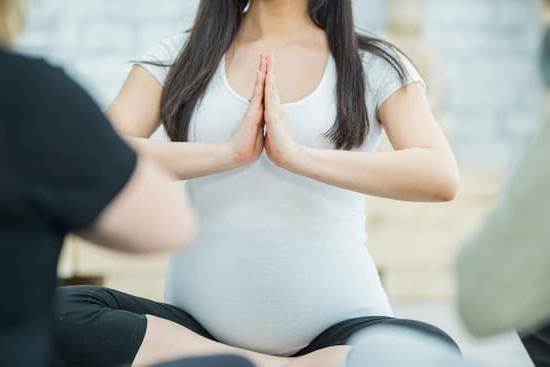Are you eagerly awaiting the first signs of pregnancy? Many women find themselves wondering, “When do you start showing pregnancy?” The early stages of pregnancy are often filled with excitement and anticipation as changes begin to occur in the body. From physiological changes to emotional and mental adjustments, the journey of starting to show pregnancy can vary greatly from woman to woman.
During the early stages of pregnancy, a woman’s body undergoes significant physiological changes as it prepares to nurture and support a growing baby. These changes can impact when a woman starts showing signs of pregnancy, and understanding the biology behind these transformations can help expectant mothers better navigate this exciting time.
As we delve into the factors influencing when a woman starts showing during pregnancy, it’s important to acknowledge that genetics, body type, and previous pregnancies can all play a role in shaping an individual’s experience. Additionally, emotional and mental changes shouldn’t be overlooked as they also contribute to the overall experience of starting to show during pregnancy. It’s important for women to recognize that each journey is unique and embrace their own individual process.
The Biology Behind Pregnancy
During pregnancy, a woman’s body undergoes numerous physiological changes to accommodate the growing fetus and prepare for childbirth. These changes are essential for supporting the development of the baby and ensuring a healthy pregnancy. Understanding the biology behind these changes can help women better navigate their pregnancy journey.
Hormonal Changes
One of the key aspects of the biology behind pregnancy is the significant hormonal changes that occur in the body. The levels of estrogen and progesterone increase substantially, which helps maintain the uterine lining and support the developing placenta. These hormones also play a crucial role in suppressing ovulation to prevent further pregnancies during gestation.
Uterine Expansion
As the fertilized egg implants itself into the uterine wall, the uterus begins to expand to accommodate the growing fetus. This expansion occurs gradually throughout pregnancy, with noticeable growth typically starting around 12 weeks. The uterus expands from its original size of about pear-shaped to fill up most of the abdominal cavity by term.
Cardiovascular Changes
Pregnancy also brings about significant cardiovascular changes as blood volume increases by up to 50% to meet the demands of both mother and baby. Additionally, hormonal influences cause blood vessels to relax and widen, leading to lower blood pressure in early pregnancy. These changes all contribute to supporting the growing fetus and ensuring adequate oxygen and nutrients reach both mother and baby.
Understanding these physiological changes can help women appreciate their bodies’ incredible ability to adapt during pregnancy. It’s important for expectant mothers to stay informed about these changes so they can make informed decisions about their health and well-being throughout their pregnancy journey.
First Trimester
The first trimester of pregnancy is an exciting and crucial period, as it marks the beginning of a new life growing inside the mother’s womb. During this time, the baby undergoes rapid development, while the mother experiences significant physiological changes. It is during this period that many women eagerly anticipate when they will start showing signs of pregnancy.
Physiologically, the first trimester is a time of remarkable changes in both the mother and baby. By the 12th week, the baby’s vital organs such as the heart, brain, and lungs have already started to form. At this stage, the embryo has developed into a fetus with distinct facial features and limbs. Meanwhile, expectant mothers experience a range of symptoms such as morning sickness, fatigue, breast tenderness, and hormonal fluctuations.
When it comes to visibly showing signs of pregnancy during the first trimester, every woman’s experience is unique and can vary based on several factors. Body type and genetics play a role in when a woman begins to show her pregnancy.
For example, women with smaller builds may show earlier while those with larger or more muscular frames may take longer to visibly display their pregnancies. Additionally, women who have had previous pregnancies or multiple pregnancies may show sooner due to their abdominal muscles being more relaxed.
| Topic | Facts |
|---|---|
| Physiological changes during first trimester | By the 12th week, vital organs like heart,lungs etc have formed. |
| Factors affecting when you start showing | Body type & genetics play role in visibility of pregnancy |
However, it’s important to note that each woman’s body responds differently to pregnancy and there is no standard timeline for when one starts showing signs of pregnancy. Some women might begin showing as early as eight weeks while others may not visibly display their pregnancies until much later.
The emotional impact of starting to show can also be significant for many women as it often signals a new chapter in their lives. Understanding these physiological and emotional changes can help expectant mothers navigate this transformative time with confidence and grace.
Factors Influencing When You Start Showing
During pregnancy, every woman experiences unique physical changes at different stages. While some may start showing their pregnancy early on, others may not show until much later. Several factors play a role in influencing when a woman begins to show signs of pregnancy. Genetics, body type, and previous pregnancies all contribute to the timeline of when a baby bump becomes noticeable.
Genetics
Genetics can play a significant role in determining when a woman starts showing during pregnancy. If a woman’s mother or grandmother began showing early in their pregnancies, there is a higher likelihood that she will as well. The genetic predisposition for carrying a baby with more amniotic fluid or having weaker abdominal muscles can also impact how quickly the baby bump becomes visible.
Body Type
A woman’s body type can also influence when she starts showing during pregnancy. Those with a smaller frame or shorter torso may show earlier simply because there is less room for the growing uterus to expand without becoming noticeable. Conversely, women with larger frames or longer torsos may take longer to show because the baby has more space to grow upwards before expanding outwards.
Previous Pregnancies
Women who have had previous pregnancies may show earlier in subsequent pregnancies compared to first-time mothers. This is due to the fact that their abdominal muscles and ligaments have already been stretched and may not provide as much support for the growing uterus. Additionally, the body’s response to hormonal changes can be different in subsequent pregnancies, resulting in an earlier appearance of the baby bump.
Understanding these factors can help women manage expectations about when they might start showing during their pregnancy journey. It’s important to remember that every woman’s experience is unique and there is no “one-size-fits-all” timeline for when a woman will begin showing her pregnancy.
Emotional and Mental Changes
During pregnancy, women experience a wide range of emotional and mental changes as their bodies transform to accommodate the growing baby. These changes can include feelings of excitement, anxiety, and even some level of disbelief about the reality of becoming a parent. Every woman’s experience is unique, and it’s important to recognize that there is no right or wrong way to feel during this time.
To help manage these emotional and mental changes, here are some practical tips for women who are starting to show pregnancy:
- Connect with other expectant mothers: Joining a support group or connecting with other pregnant women can provide comfort and reassurance. It allows for the sharing of experiences and strategies for coping with the emotional and mental changes that come with starting to show pregnancy.
- Practice self-care: Taking care of oneself is crucial during pregnancy. This can include getting enough rest, engaging in activities that bring joy, and seeking out therapy or counseling if needed.
- Communicate with your partner: Open and honest communication with your partner about your feelings and concerns can help strengthen your relationship during this time of change.
It’s important for women to understand that it’s okay to have mixed emotions throughout their pregnancy journey. Seeking support from trusted friends, family members, or professionals can make a significant difference in handling the emotional and mental impact of starting to show pregnancy. Remember that every woman’s experience is valid and unique.
Tips for Managing Changes
When do you start showing pregnancy? The answer to this question can vary for each woman. Typically, most women start showing during the second trimester, around 12-16 weeks. However, this can be influenced by factors such as genetics, body type, and whether it’s a first pregnancy or not. It’s important to remember that every woman’s pregnancy journey is unique, and there is no one-size-fits-all answer to when you will start showing.
During the early stages of pregnancy, it’s common for women to experience physical changes such as bloating, breast tenderness, and fatigue. As the pregnancy progresses and the baby grows, the uterus expands and starts to become more noticeable. Emotionally and mentally, starting to show pregnancy may also bring about a range of feelings from excitement and anticipation to anxiety and uncertainty about body changes.
To manage these physical and emotional changes associated with starting to show pregnancy, there are some practical tips that can be helpful. Firstly, it’s important to listen to your body and prioritize rest when needed.
Eating a balanced diet and staying physically active (with your doctor’s approval) can also support overall well-being during pregnancy. Additionally, seeking emotional support from loved ones or joining a support group for expectant mothers can provide a sense of community during this time.
| Physical Changes | Emotional Changes |
|---|---|
| Bloating | Excitement |
| Breast Tenderness | Anxiety |
| Fatigue | Uncertainty about Body Changes |
When to Announce Pregnancy
The timing of when to announce a pregnancy is a personal decision for every woman and her partner. When a woman starts showing can vary due to factors such as body type, genetics, and whether it’s her first pregnancy or not. These factors can impact the visibility of the pregnancy bump, leading some women to show earlier than others. Here are some considerations for when to announce a pregnancy based on when a woman starts showing:
- Mindful of Miscarriage Risk: Some women may choose to wait until they have reached the end of the first trimester before announcing their pregnancy. This is because the risk of miscarriage is higher during the first 12 weeks, and waiting until this milestone has passed can provide some reassurance.
- Workplace Considerations: Depending on the nature of your job and workplace policies, you may need to consider when to inform your employer about your pregnancy. If your job involves physical exertion or exposure to certain substances, it may be necessary to disclose your pregnancy earlier in order to ensure appropriate accommodations.
- Personal Comfort: Ultimately, the decision of when to announce a pregnancy should be based on the woman’s comfort level. Some women may prefer to share the news early on with close family and friends for emotional support, while others may wish to wait until they are further along in their pregnancy.
It’s important for individuals and couples to discuss these considerations together and make a decision that feels right for them. Every pregnancy journey is unique, and there is no one-size-fits-all approach when it comes to announcing a pregnancy. Ultimately, the timing should align with what feels best for both the expectant parents.
Conclusion
In conclusion, the timing of when a woman starts showing during pregnancy is as unique and individual as the journey of pregnancy itself. The early stages of pregnancy are filled with anticipation, excitement, and physical and emotional changes. From the biological processes that take place in the body to the factors influencing when a woman starts showing, each pregnancy experience is different.
It is important to remember that a woman’s genetics, body type, and previous pregnancies can impact when she starts showing. Additionally, the emotional and mental changes that come with beginning to show during pregnancy are also varied and individualized. Some women may feel joy and happiness, while others may experience anxiety or uncertainty. It’s crucial to acknowledge and validate these different experiences as normal parts of the journey.
As women navigate through the early stages of pregnancy and start showing, it’s essential to find ways to manage the physical and emotional changes effectively. Seeking support from loved ones or healthcare professionals can provide valuable guidance for coping with these changes. Finally, announcing a pregnancy should be a thoughtful decision based on personal circumstances, regardless of when a woman begins to show.
Each woman should feel empowered in choosing the right time to share her exciting news with others. Ultimately, it’s crucial to recognize that every pregnancy experience is unique and embrace the individual nature of this remarkable journey.
Frequently Asked Questions
Am I Starting to Show at 8 Weeks?
At 8 weeks of pregnancy, most women will not yet be showing a noticeable baby bump. The uterus is still relatively small at this stage, and any changes in the belly are often due to bloating or other factors.
When Does Pregnancy Belly Start to Show?
In general, pregnancy belly typically starts to show between 12 and 16 weeks for first-time mothers. For women who have been pregnant before, it may show earlier due to the stretching of the abdominal muscles from previous pregnancies.
When Does Baby Bump Grow the Most?
The baby bump tends to grow the most during the second trimester of pregnancy, which is around weeks 14 to 27. This is when the fetus experiences significant growth and development, leading to a more pronounced and noticeable baby bump for expectant mothers.

Welcome to my fertility blog. This is a space where I will be sharing my experiences as I navigate through the world of fertility treatments, as well as provide information and resources about fertility and pregnancy.





